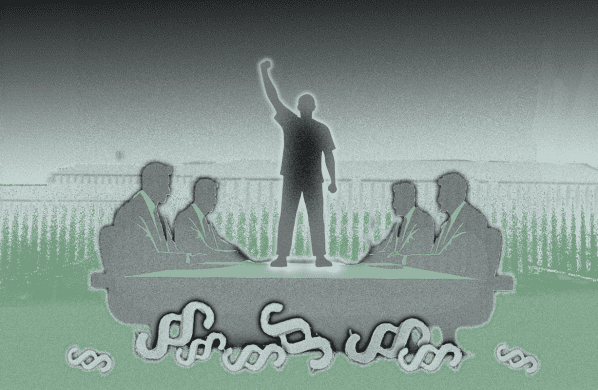It was with great fanfare that the United States and 188 other countries signed the United Nations Millennium Declaration, a manifesto to eradicate extreme poverty, hunger and disease among the one billion people in the world who subsist on barely anything, writes The New York Times in Thursdays editorial.
The project set a deadline of 2015 to achieve its goals. Chief among them was the goal for developed countries, like America, Britain and France, to work toward giving 0,7 percent of their national incomes for development aid for poor countries.
Almost a third of the way into the program, the latest available figures show that the percentage of United States income going to poor countries remains near rock bottom: 0,14 percent. Britain is at 0,34 percent, and France at 0,41 percent. (Norway and Sweden, to no ones surprise, are already exceeding the goal, at 0,92 percent and 0,79 percent.)
And we learned this week that in the last two months, the Bush administration has reduced its contributions to global food aid programs aimed at helping hungry nations become self-sufficient, and it has told charities like Save the Children and Catholic Relief Services that it will not honor earlier promises.
Instead, administration officials said that most of the countrys emergency food aid would go to places where there were immediate crises.
Somethings not right here, writes the influential daily according to the World Bank press review.
The United States is the worlds richest nation. Washington is quick to say that it contributes more money to foreign aid than any other country. But no one is impressed when a billionaire writes a 50 dollar check for a needy family.
The test is the percentage of national income we give to the poor, and on that basis this country is the stingiest in the Group of Seven industrialized nations.
The administration has cited the federal budget deficit as the reason for its cutback in donations to help the hungry feed themselves. In fact, the amount involved is a pittance within the federal budget when compared with our 412 billion dollar deficit, which has been fueled by war and tax cuts.
The administration can conjure up (trygle om) 87 billion dollar for the fighting in Iraq, but can it really not come up with more than 15,6 billion dollar – our overall spending on development assistance in 2002 – to help stop an 8-year-old AIDS orphan in Cameroon from drinking sewer water or to buy a mosquito net for an infant in Sierra Leone?
There is a very real belief abroad that the United States, which gave two percent of its national income to rebuild Europe after World War II, now engages with the rest of the world only when it perceives that its own immediate interests are at stake.
If that is unfair, it is certainly true that American attention is mainly drawn to international hot spots. After the Sept. 11 bombings, Washington ratcheted up aid to Pakistan to help fight the war on terror.
Just last week, it began talks aimed at contributing more aid to the Palestinians to encourage them to stop launching suicide bombers at Israel. Here is a novel idea: how about giving aid before the explosion, not just after? asks The New York Times.
Kilde: www.worldbank.org















